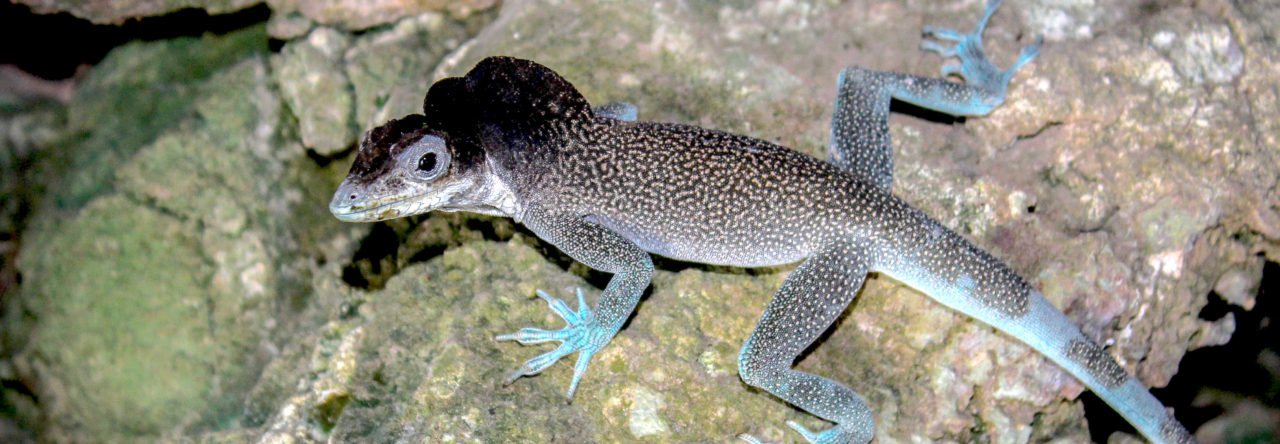
A male Red-eyed Coquí (Eleutherodactylus antillensis) courting a female coqui in St. Thomas, U.S. Virgin Islands. Photo by Brittany Barker.

A Mountain Coqui (Eleutherodactylus portoricensis) at El Yunque National Forest, Puerto Rico. Photo by Alejandro Ríos-Franceschi.
Contemporary climatic change is affecting species distributions, with important consequences for the long-term persistence and evolutionary potential of biodiversity. Endemic species on small, isolated islands are often particularly vulnerable to environmental change due to their restricted distributions and modest population sizes. Exploring how island biotas have responded to past climatic conditions may yield insights into their potential responses to changing conditions.
In our study recently published in Ecography, we sought to extend current knowledge on the role of late Quaternary climate in shaping distributions, diversification, and speciation dynamics in tropical islands. We conducted the study on two ecologically distinctive Eleutherodactylus frogs in Puerto Rico, the smallest and most easterly of the Greater Antilles. Whereas the mountain coquí (Eleutherodactylus portoricensis) is restricted to cool and moist understory montane forest habitat in Puerto Rico, the red-eyed coquí (E. antillensis) is a habitat generalist with a broad elevational distribution on most of the larger islands of the archipelago. We used ecological niche models under past and current climate to derive hypotheses regarding how stable climatic conditions shaped genetic diversity in E. portoricensis and E. antillensis. To test our hypotheses, we conducted phylogeographic and population genetic analyses based on mitochondrial and nuclear loci of each species across their range in Puerto Rico.
As predicted, regions with a large area of long-term suitable climate were associated with higher genetic diversity in E. portoricensis and E. antillensis, suggesting larger and more stable populations. Long-term unsuitable climatic conditions in the Río Grande de Loíza Basin, a warm and arid landscape that physiographically separates the Central and Luquillo Mountains of Puerto Rico, is a barrier to gene flow between populations of both species. These results are consistent with a previous study that suggested that temporally stable climatic conditions promote the accumulation of genetic diversity in the Puerto Rican lizard Anolis krugi.
Our findings illustrate the role of persistent suitable climatic conditions in promoting the persistence and diversification of tropical island organisms. The rate of climate change we’re experiencing now is faster than at any time in the last millennium, which highlights the urgency of understanding how small, isolated island endemic species respond to environmental change.
Brittany S. Barker
University of Arizona, Department of Ecology and Evolutionary Biology

